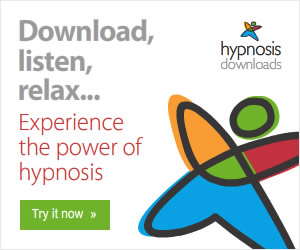Forget the stage-show stereotypes. Hypnosis has helped people cut back on pain, anxiety, and depression medications, resolve intestinal problems, quit smoking, even have less stressful childbirth.
There's no pocket watch involved. Hypnosis is simply a state of concentration and focused attention -- focused on a mental image. It's a skill that must be learned from a trained therapist. With practice, hypnotizing yourself comes easily. Self-hypnosis is the path to training both mind and body to make a desired change.
"People who are able to do self-hypnosis can use that focus for a variety of purposes," Stan Chapman, PhD, a psychologist in the Center for Pain Medicine at Emory Healthcare in Atlanta, tells WebMD. "For example, someone who is very depressed may realize on one level that life is not hopeless and pointless. But if he focuses on a thought contrary to that, the idea becomes deeply embedded in his subconscious."
Here's what happens: Guided by a therapist's words, you slip deeper and deeper into a very relaxed, very focused state -- into your subconscious. That's when a suggestion, a thought that will help you solve a problem, is introduced by the therapist. When the mind is intensely focused, these so-called post-hypnotic suggestions have a powerful impact, Chapman says.
Don't worry, you won't lose consciousness. You won't do anything against your will. Afterward, you are very much aware of what happened while you were "under." You will recognize and remember the post-hypnotic suggestion. And, with practice, you can learn to hypnotize yourself to reinforce the suggestion.
Pain Control Through HypnosisMarc Oster, PsyD, a Chicago psychologist, relies on self-hypnosis when he gets dental work done. "I get Novocain just like other patients, but I don't need as much of it because I'm under hypnosis. Afterward, I can go back to work for a full day. When the Novocain wears off, I don't have the pain, the jaw ache, or the headache that other people have," he told WebMD, in a previous interview.
No one knows exactly how hypnosis works, but scientists have theories. Hypnosis helps change our expectations. When a suggestion is made during hypnosis, the mind gains control over the body. Focus your attention on an image that blocks the perception of pain, for instance, and you feel less pain. Your subconscious has grabbed hold of that message, replaying it time and again.
Research from Harvard Medical School and other institutions is showing evidence that hypnosis is indeed a process of mind over body. Studies are documenting the physiological changes that occur under hypnosis -- activating certain parts of the brain, including the portion that focuses attention.
In fact, studies have shown pain related to cancer, surgery, back injuries, and migraines may respond well to hypnosis.
Hypnosis has been blessed by many mainstream medical institutions, says Oster, who heads the American Society of Clinical Hypnosis. In 1958, the American Medical Association officially recognized hypnosis as a form of treatment. The American Psychological Association has endorsed hypnosis for a number of years. In 1995, the NIH announced its support of hypnosis for cancer pain and other pain conditions.
Growing numbers of insurance companies, including Medicare, have begun covering hypnosis therapy for pain or Post Traumatic Stress Disorder (PTSD).
Pain control is just one use for self-hypnosis. Among the others:
Digestive Problems: Chronic indigestion and other symptoms of irritable bowel syndrome (IBS) have been treated with hypnotherapy. Recently, a large, long-term study showed that hypnosis provides sustained improvements in significant numbers of IBS patients. Hypnosis eased abdominal pain, distention, diarrhea, constipation, and other stomach upsets for many years -- even after the patients quit doing self-hypnosis.
Most of the patients took no medication or other treatments for their IBS symptoms. And, since only a couple of medications are approved for IBS, the drug treatment can be expensive long-term. But for those who tried hypnosis, the payoff was having a better quality of life. The procedure also dramatically cut medication expenses.
Hypnosis can also help kids who have chronic stomach pain -- the type of pain that is real, but unexplained. The problem results in lost time at school, frequent doctor visits, as well as anxiety and depression, and can last into adult years. But through a combination approach -- relaxation, guided imagery, and hypnosis -- it's possible for kids to gain control over their pain.
Panic Attacks: The onset of a panic attack has a cluster of symptoms: the feeling of intense fear, sense of doom, feelings of unreality, racing heartbeat, difficulty breathing, sweating, shaking, dizziness, nausea, fear of losing control, tingling or numbness in the hands. Hypnosis has been shown to help some people find relief from panic attacks.
Hypnosis can strengthen the effect of mind over body, researchers say. It can change the way you perceive sensations. By narrowly focusing your attention, you're not overwhelmed by panic attack symptoms when they begin. You are able to relax physically. The attack fades away.
Childbirth: It's known as "hypnobirthing" -- women learning how to hypnotize themselves to manage their labor. It helps them to relax and let their bodies take over. The theory is that, in the absence of fear and tension, severe pain does not have to accompany labor. In this calm state, endorphins -- naturally occurring pain-relieving chemicals -- replace the stress hormones that contribute to pain. Even women choosing more traditional methods, such as painkilling drugs, can still benefit from the stress-relieving power of hypnosis.
Quit Smoking via Hypnosis?Smoking Cessation: The American Cancer Society advocates hypnosis as one of many stop-smoking techniques -- helping some smokers stay off tobacco for six months or longer. They suggest it might be helpful for some people.
For many people, hypnosis is a way to change beliefs and attitudes that stand in the way of quitting. Hypnosis might enhance confidence, promote a general sense of well-being, decrease withdrawal urges, and help people focus on the importance of quitting. Best results come when hypnosis is simply used as an aid -- combined with other stop-smoking methods, such as the nicotine patch, researchers say.
SOURCES: Stan Chapman, PhD, psychologist, Center for Pain Medicine, Emory Healthcare, Atlanta. WebMD Feature: "Hypnosis Goes Mainstream." WebMD Medical News: "Hypnosis May Be Useful IBS Treatment." WebMD Medical News: "Hypnosis Soothes Indigestion." WebMD Medical News: "Researchers Target New Ways to Stop Chronic Pain." WebMD Medical News: "Hypnosis for Pain," WebMD Feature: "Natural Panic Attack Treatments." WebMD Medical News: "Hypnosis in the Delivery Room." WebMD Feature: "You Are Getting Skinny, Skinny."
Edited by Louise Chang, MD on March 01, 2006
© 2005 WebMD, Inc.
Visit
Hypnotherapy for Positive Changefor more articles about the therapeutic uses of hypnosis.
















